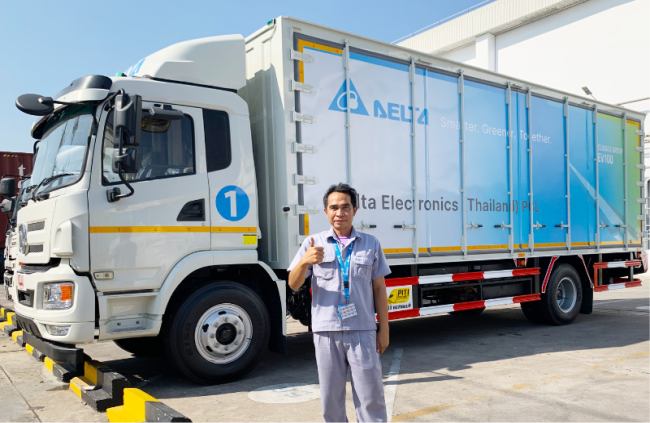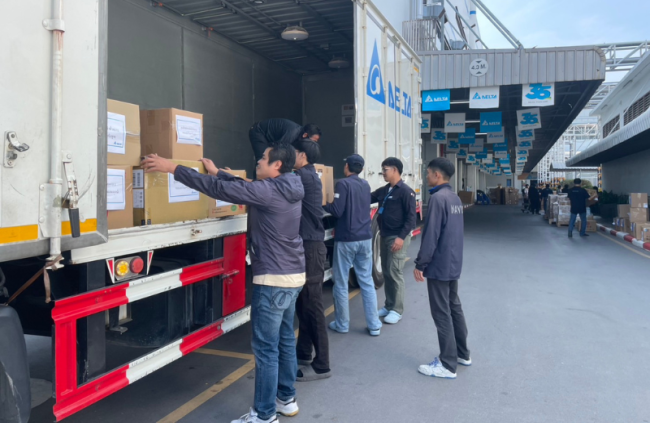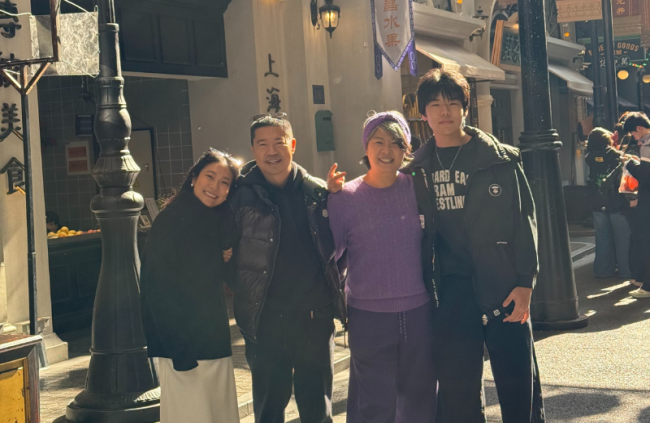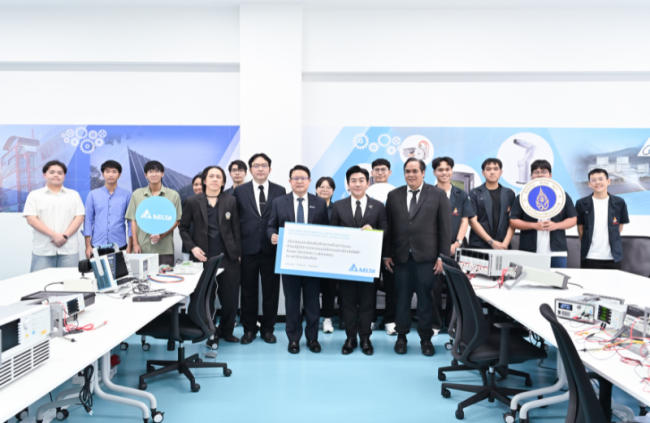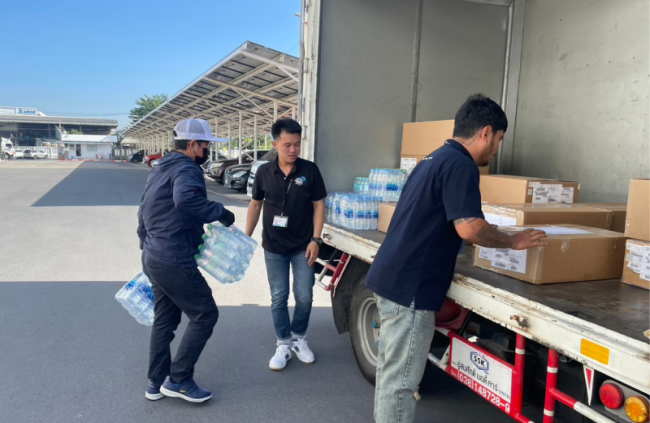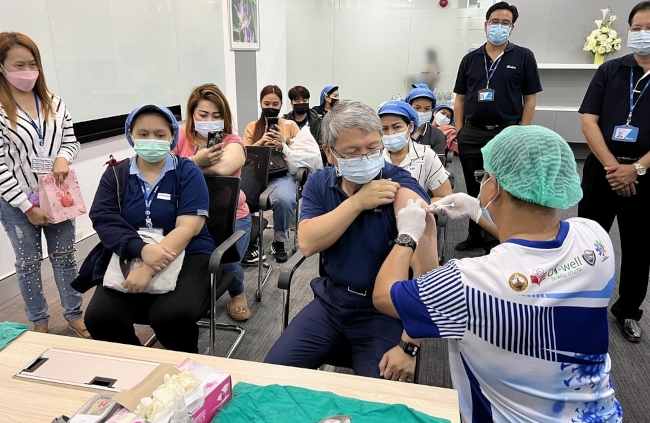Delta Sustainable Development Part 5: Zero Food Waste for a Local Circular Economy
By Nicha Aramay - Published January 19, 2022
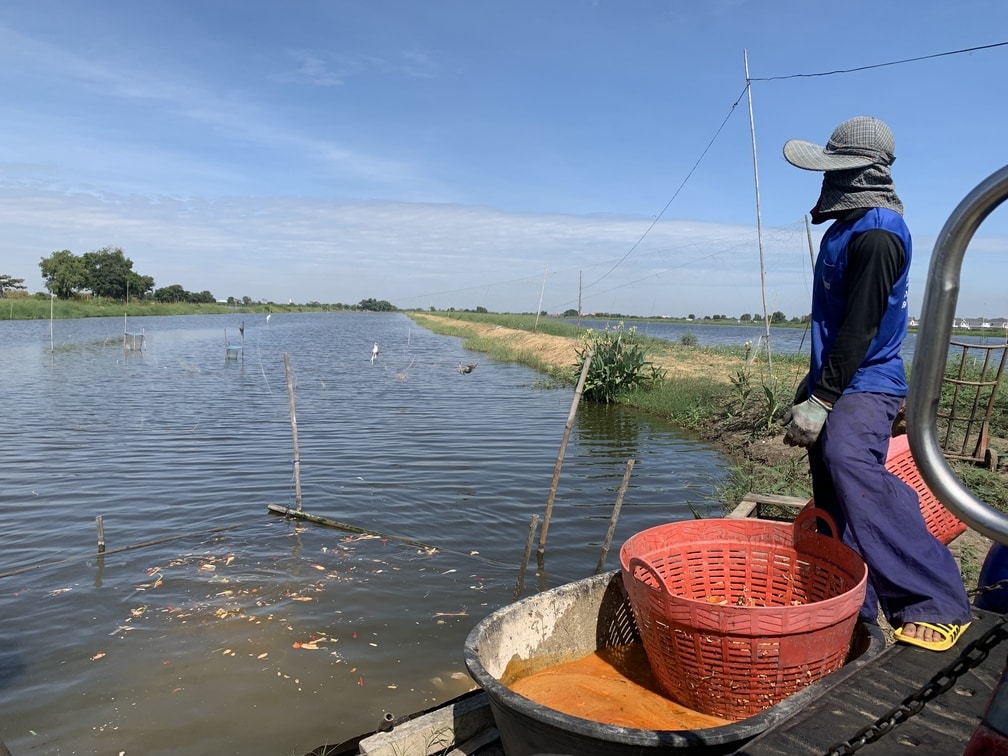 By Nicha Aramay, DET SD
By Nicha Aramay, DET SD
One important part of our Sustainable Development (SD) work at Delta Electronics Thailand is our action to reduce food waste to landfills and promote the “Circular Economy” concept in our local community.
To reach our goals, Delta manages food waste processing at our company canteen with a “FoodCycle” model. This brings food waste from our canteens to local farmers to use as animal feed. Our food recycling process benefits local farmers and enables us to reduce food waste typically disposed of as general waste to landfills.
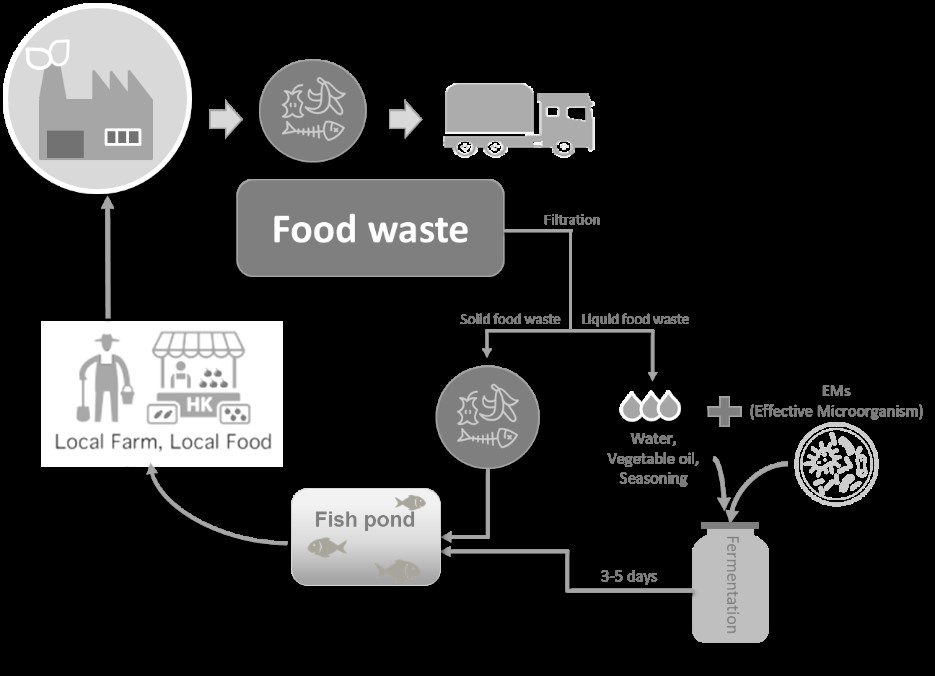 Delta’s FoodCycle is based on a "waste-to-farm-to-table" circular concept. We reduce and recycle waste by sorting food waste to use as either animal feed or for fish food at farm ponds.
Delta’s FoodCycle is based on a "waste-to-farm-to-table" circular concept. We reduce and recycle waste by sorting food waste to use as either animal feed or for fish food at farm ponds.
The food waste journey at Delta begins from the time our dishes are cleared of scraps and nothing goes wasted.
Our food waste that is used as feed in fish ponds is first pre-treated with Effective Microorganisms (EMs). EMs are a widely used eco-friendly biological cocktail of microorganisms such as phototropic bacteria, lactic acid bacteria, actinomycetes, fungi and yeast. It is used in food, agriculture, animal husbandry, fisheries, environmental cleanup and in the medical field.
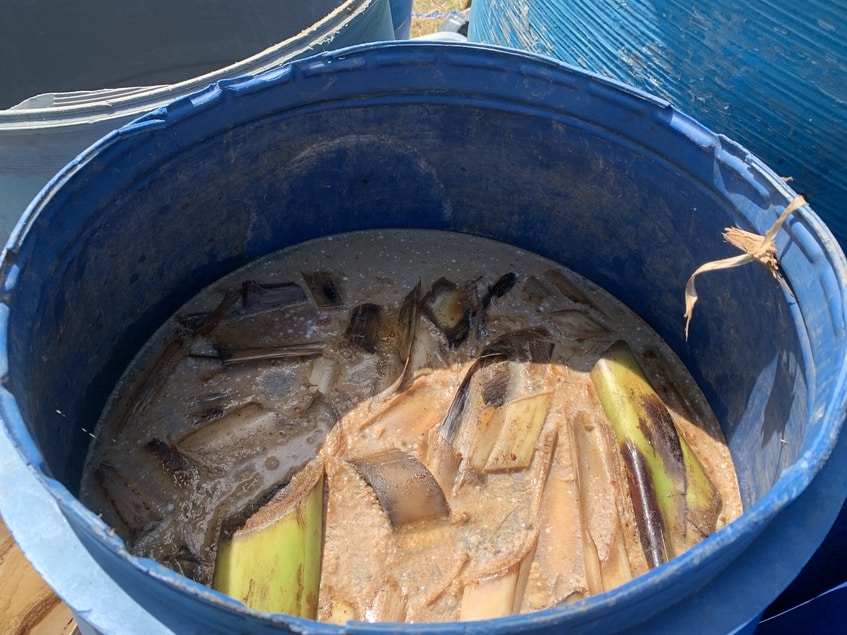
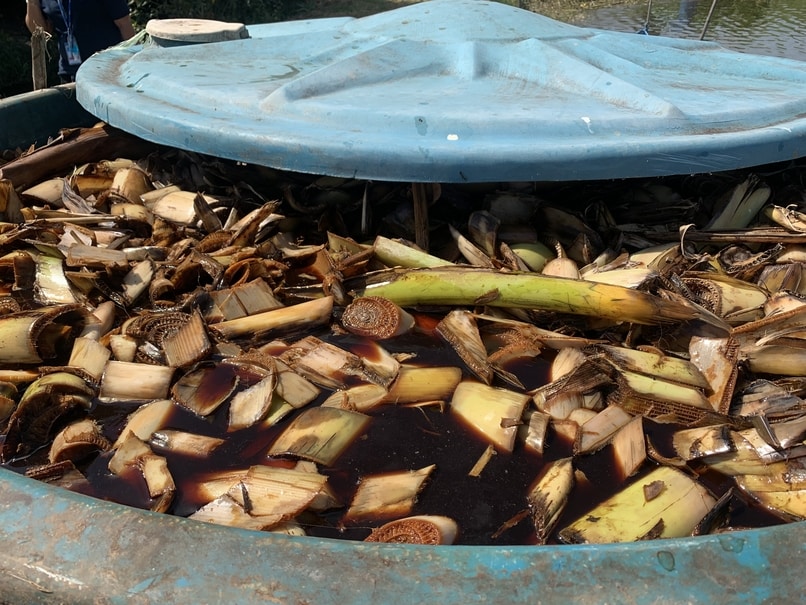 The EMs is fortified with molasses as a carbon source, clean water and banana residues which can be easily found in our local area. After 10-15 days, the EMs will be ready to use for liquid food waste fermentation. Solids from the treated food waste are filtered and fed to fishes in the pond. The remaining liquid waste is mixed with EMs and kept in tanks covered with lids. This prevents contamination by insects and animals during the fermentation process.
The EMs is fortified with molasses as a carbon source, clean water and banana residues which can be easily found in our local area. After 10-15 days, the EMs will be ready to use for liquid food waste fermentation. Solids from the treated food waste are filtered and fed to fishes in the pond. The remaining liquid waste is mixed with EMs and kept in tanks covered with lids. This prevents contamination by insects and animals during the fermentation process.
After a 3-4 days fermentation process, the liquid waste is ready to feed to the fish. EMs helps in the degradation of the organic compounds and hasten up the treatment or decomposition process. It also significantly eliminates the problem of odor and flies associated with food waste composting processes.
Untreated liquid food waste consists of water, vegetable oil and seasonings with high pH levels that is not suitable to directly feed to fish or drain into the sewer system. Vegetable oils from food can lead to severe damage like blocked pipes, depleted oxygen, oil film formation, odor problems and congested treatment filters. Thus, untreated oil causes pollution that can kill living marine organisms.
We use EMs to degrade oil and adjust the pH levels before release to the natural environment. This process is safe, environmentally sustainable, cost-effective and acceptable to the community. Microbial vegetable oil degradation is considered efficient as it is specific, reduces time management, eco-friendly, easy to be used which effectively reduces chemical oxygen demand and suspended lipid solids compared to thermal methods.
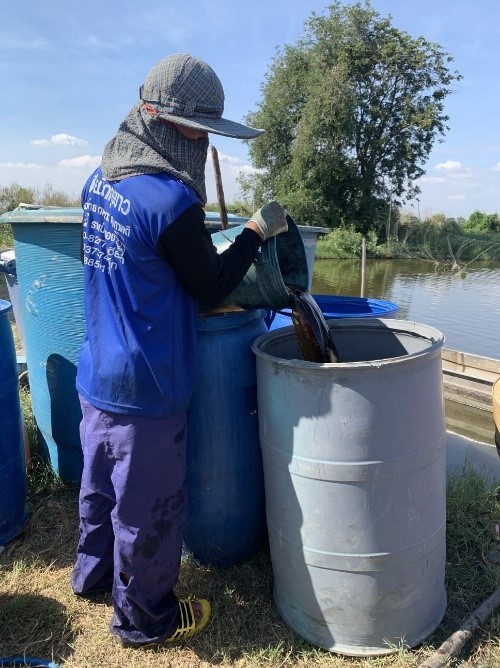
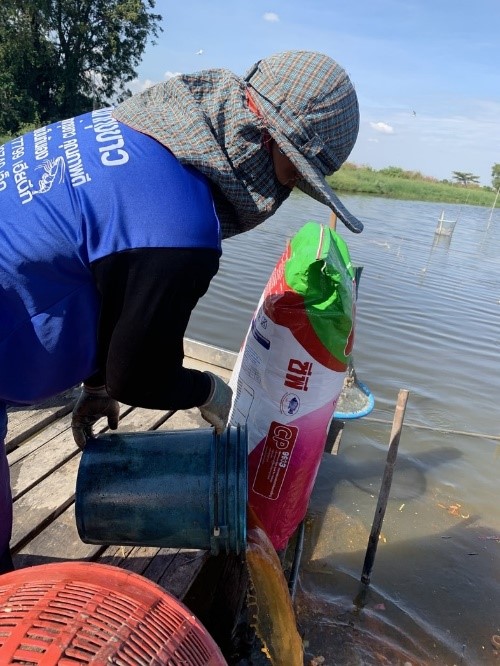
Samutprakarn Province, where Delta’s plants are located, is next to the coastline making it suitable for inland fisheries and coastal fisheries. According Provincial research in 2018, the most common inland fisheries are for the Nile Tilapia fish species which take up an area of around 19,058.76 acres.
The fermented liquid food waste treated with EMs is fed to fish ponds with organic substances and vegetable oils rendered harmless to fish. According to a study in 2021, EMs could have beneficial effects on Tilapia fish, such as promoting growth, improving their immunity, and stimulating food intake.
Khun Aof, a local fish farmer in Samutprakarn Province said, “The price of fish food has been increasing each year. Food waste from Delta’s canteens helps us fish farmers to save fish food costs and it’s also healthy for our fish growth.”
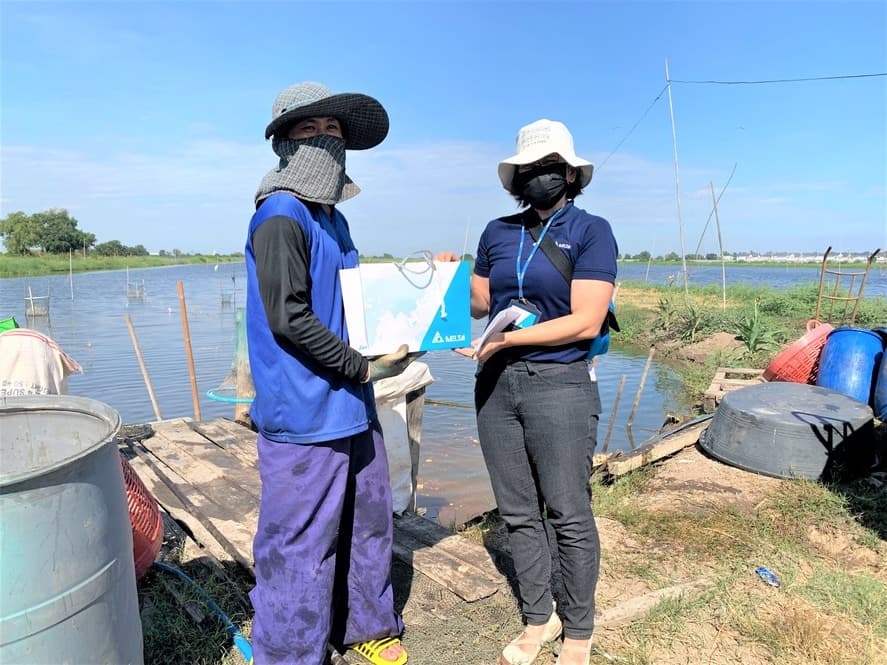 Every year Delta sorts around 620 tons of food waste to give to local farmers to use as animal feed. In this way Delta Thailand is able to reduce our waste to landfill and help our community farmers reduce their animal feed costs by 31%. This is a significant economic contribution to our local farm sector of approximately 1,720,000 Baht per year in animal feed savings.
Every year Delta sorts around 620 tons of food waste to give to local farmers to use as animal feed. In this way Delta Thailand is able to reduce our waste to landfill and help our community farmers reduce their animal feed costs by 31%. This is a significant economic contribution to our local farm sector of approximately 1,720,000 Baht per year in animal feed savings.
At Delta, we choose to give back to the circular bio-economy and achieve sustainable food waste management by collaborating with our community. Our goal is to circulate food waste for maximum value add. We aim to feed people in our communities and not landfills.

